9 start with F start with F
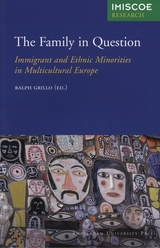
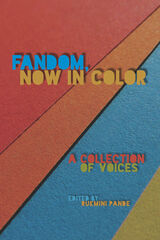
Fandom, Now in Color gathers together seemingly contradictory narratives that intersect at the (in)visibility of race/ism in fandom and fan studies. This collection engages the problem by undertaking the different tactics of decolonization—diversifying methodologies, destabilizing canons of “must-read” scholarship by engaging with multiple disciplines, making whiteness visible but not the default against which all other kinds of racialization must compete, and decentering white fans even in those fandoms where they are the assumed majority. These new narratives concern themselves with a broad swath of media, from cosplay and comics to tabletop roleplay and video games, and fandoms from Jane the Virgin to Japan’s K-pop scene. Fandom, Now in Color asserts that no one answer or approach can sufficiently come to grips with the shifting categories of race, racism, and racial identity.
Contributors: McKenna Boeckner, Angie Fazekas, Monica Flegel, Elizabeth Hornsby, Katherine Anderson Howell, Carina Lapointe, Miranda Ruth Larsen, Judith Leggatt, Jenni Lehtinen, joan miller, Swati Moitra, Samira Nadkarni, Indira Neill Hoch, Sam Pack, Rukmini Pande, Deepa Sivarajan, Al Valentín

“Given the current political conditions, these lectures on race, ethnicity, and nation, delivered by Stuart Hall almost a quarter of a century ago, may be even more timely today.”
—Angela Y. Davis
In this defining statement one of the founding figures of cultural studies reflects on the divisive, often deadly consequences of our contemporary politics of race and identity. As he untangles the power relations that permeate categories of race, ethnicity, and nationhood, Stuart Hall shows how old hierarchies of human identity were forcefully broken apart when oppressed groups introduced new meanings to the representation of difference.
Hall challenges us to find more sustainable ways of living with difference, redefining nation, race, and identity.
“Stuart Hall bracingly confronts the persistence of race—and its confounding liberal surrogates, ethnicity and nation…This is a profoundly humane work that…finds room for hope and change.”
—Orlando Patterson
“Stuart Hall’s written words were ardent, discerning, recondite, and provocative, his spoken voice lyrical, euphonious, passionate, at times rhapsodic and he changed the way an entire generation of critics and commentators debated issues of race and cultural difference.”
—Henry Louis Gates, Jr.
“Essential reading for those seeking to understand Hall’s tremendous impact on scholars, artists, and filmmakers on both sides of the Atlantic.”
—Artforum

In a new perspective on the formation of national identity in Central Europe, Nancy Wingfield analyzes what many historians have treated separately--the construction of the Czech and German nations--as a larger single phenomenon.
Czech and German nationalism worked off each other in dynamic ways. As external conditions changed, Czech and German nationalists found new uses for their pasts and new ways to stage them in public spaces for their ongoing national projects. These grassroots confrontations transformed public culture by reinforcing the centrality of nationality to everyday life and by tying nationalism to the exercise of power. The battles in the public sphere produced a cultural geography of national conflict associated with the unveiling of Joseph II statues that began in 1881, the Badeni Language Ordinances of 1897, the 1905 debate over a Czech-language university in Moravia, and the celebration of the emperor's sixtieth jubilee in 1908. The pattern of impassioned national conflict would be repeated for the duration of the monarchy and persist with even more violence into the First Czechoslovak Republic.
Numerous illustrations show how people absorbed, on many levels, visual clues that shaped how they identified themselves and their groups. This nuanced analysis is a valuable contribution to our understanding of Central European history, nationalism, and the uses of collective memory.
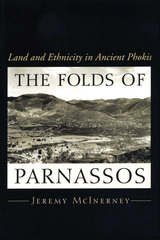
Independent city-states (poleis) such as Athens have been viewed traditionally as the most advanced stage of state formation in ancient Greece. By contrast, this pioneering book argues that for some Greeks the ethnos, a regionally based ethnic group, and the koinon, or regional confederation, were equally valid units of social and political life and that these ethnic identities were astonishingly durable.
Jeremy McInerney sets his study in Phokis, a region in central Greece dominated by Mount Parnassos that shared a border with the panhellenic sanctuary at Delphi. He explores how ecological conditions, land use, and external factors such as invasion contributed to the formation of a Phokian territory. Then, drawing on numerous interdisciplinary sources, he traces the history of the region from the Archaic age down to the Roman period. McInerney shows how shared myths, hero cults, and military alliances created an ethnic identity that held the region together over centuries, despite repeated invasions. He concludes that the Phokian koinon survived because it was founded ultimately on the tenacity of the smaller communities of Greece.
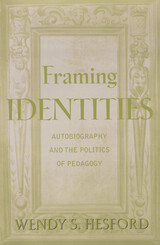
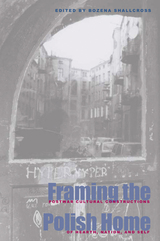
As the subject of ideological, aesthetic, and existential manipulations, the Polish home and its representation is an ever-changing phenomenon that absorbs new tendencies and, at the same time, retains its centrality to Polish literature, whether written in Poland or abroad. Framing the Polish Home is a pioneering work that explores the idea of home as fundamental to the question of cultural and national identity within Poland's recent history and its tradition.
In this inaugural volume of the Polish and Polish-American Studies Series, the Polish home emerges in its rich verbal and visual representations and multiple material embodiments, as the discussion moves from the loss of the home during wartime to the Sovietized politics of housing and from the exilic strategies of having a home to the the idyllic evocation of the abodes of the past.
Although, as Bożena Shallcross notes in her introduction, “few concepts seem to have such universal appeal as the notion of the home,” this area of study is still seriously underdeveloped. In essays from sixteen scholars, Framing the Polish Home takes a significant step to correct that oversight, covering a broad range of issues pertinent to the discourse on the home and demonstrating the complexity of the home in Polish literature and culture.
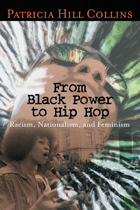
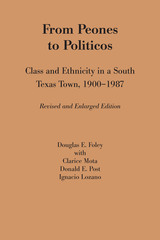
How does a relatively powerless ethnic group deal with the problems of economic inequality and racial discrimination? How do they gain power in the community? From Peones to Politicos examines these questions in detail, focusing on the changes in Mexicano-Anglo relations in one small South Texas community called North Town. These changes are typical of evolving Mexicano-Anglo relations in much of Texas and the Southwest.
The authors divide their study into three historical periods: the rancho era (1900–1930), the colonia era (1930–1970), and the contemporary period (1970–1977). They trace how Mexicano-Anglo relations have evolved away from the extremely exploitative, paternalistic sharecropper system of the rancho era, when open racism, strict social segregation, and effective Anglo political machines prevailed. They reveal, by contrast, how Mexicanos have become a power to be reckoned with by developing their own economic and political leaders and ethnic political organizations and challenging the Anglo control of the city, school, and county governments. The study also shows how Mexican American family practices have been changed by this transformation of the local political economy.
This revised edition of From Peones to Politicos presents updated fieldwork and additional discussion of class theory and the study of racial orders. Of special interest are reactions to the study by North Town residents themselves, which appear in the new Part IV.
READERS
Browse our collection.
PUBLISHERS
See BiblioVault's publisher services.
STUDENT SERVICES
Files for college accessibility offices.
UChicago Accessibility Resources
home | accessibility | search | about | contact us
BiblioVault ® 2001 - 2024
The University of Chicago Press









